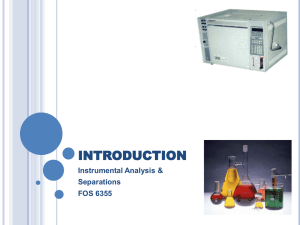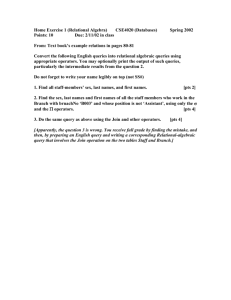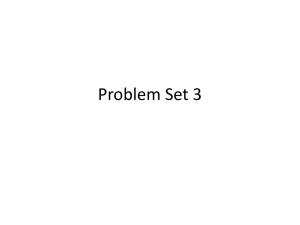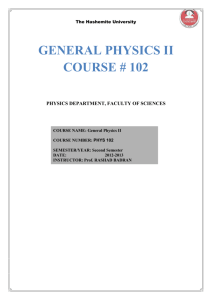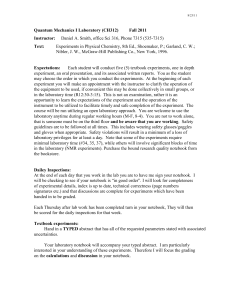Syllabus - UMD Physics - University of Maryland
advertisement
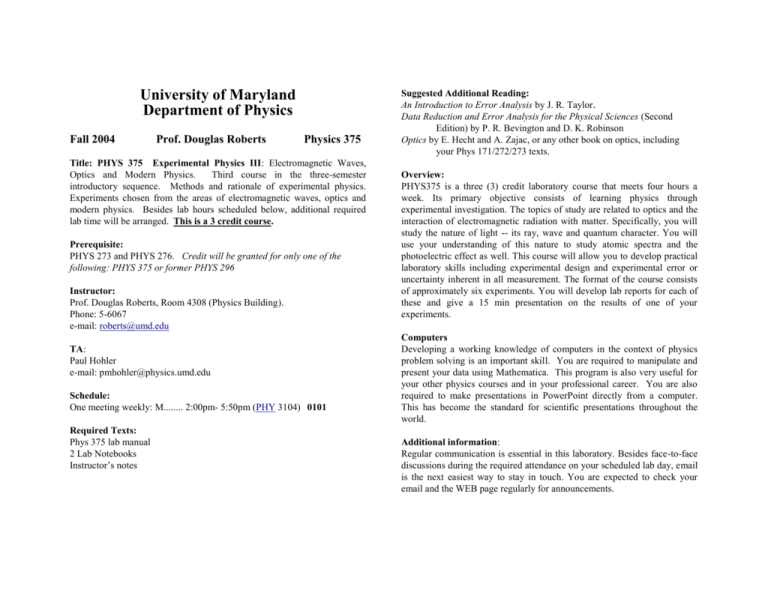
University of Maryland Department of Physics Fall 2004 Prof. Douglas Roberts Physics 375 Title: PHYS 375 Experimental Physics III: Electromagnetic Waves, Optics and Modern Physics. Third course in the three-semester introductory sequence. Methods and rationale of experimental physics. Experiments chosen from the areas of electromagnetic waves, optics and modern physics. Besides lab hours scheduled below, additional required lab time will be arranged. This is a 3 credit course. Prerequisite: PHYS 273 and PHYS 276. Credit will be granted for only one of the following: PHYS 375 or former PHYS 296 Instructor: Prof. Douglas Roberts, Room 4308 (Physics Building). Phone: 5-6067 e-mail: roberts@umd.edu TA: Paul Hohler e-mail: pmhohler@physics.umd.edu Schedule: One meeting weekly: M........ 2:00pm- 5:50pm (PHY 3104) 0101 Required Texts: Phys 375 lab manual 2 Lab Notebooks Instructor’s notes Suggested Additional Reading: An Introduction to Error Analysis by J. R. Taylor. Data Reduction and Error Analysis for the Physical Sciences (Second Edition) by P. R. Bevington and D. K. Robinson Optics by E. Hecht and A. Zajac, or any other book on optics, including your Phys 171/272/273 texts. Overview: PHYS375 is a three (3) credit laboratory course that meets four hours a week. Its primary objective consists of learning physics through experimental investigation. The topics of study are related to optics and the interaction of electromagnetic radiation with matter. Specifically, you will study the nature of light -- its ray, wave and quantum character. You will use your understanding of this nature to study atomic spectra and the photoelectric effect as well. This course will allow you to develop practical laboratory skills including experimental design and experimental error or uncertainty inherent in all measurement. The format of the course consists of approximately six experiments. You will develop lab reports for each of these and give a 15 min presentation on the results of one of your experiments. Computers Developing a working knowledge of computers in the context of physics problem solving is an important skill. You are required to manipulate and present your data using Mathematica. This program is also very useful for your other physics courses and in your professional career. You are also required to make presentations in PowerPoint directly from a computer. This has become the standard for scientific presentations throughout the world. Additional information: Regular communication is essential in this laboratory. Besides face-to-face discussions during the required attendance on your scheduled lab day, email is the next easiest way to stay in touch. You are expected to check your email and the WEB page regularly for announcements. Grading: Your final grade will be based on 800 points determined by your lab reports, laboratory skill and an oral presentation according to the following scheme: Lab reports @ 100 pts each 600 pts Laboratory skill 100 pts Oral presentation 100 pts TOTAL 800 pts Phys 375 Lab Manual In this course we shall treat the lab manual as a reference book rather than a detailed list of tasks to perform. In most cases we shall only perform a fraction of the tasks discussed in the lab manual. Lab Reports: Your lab report grade will depend on the following categories: articulation of the experimental problem, knowledge of instrumentation, experimental approach and technique, results and analysis and presentation. The course will evolve during the semester. At the beginning, we will focus on the learning Mathematica, how to keep a lab notebook and how to perform experiments. In the second half of the lab, we will focus more on discovery through experiments. In general, each lab will be worth 100 pts and will be graded according to the following scheme: Articulation of the Problem and Summary of the Physics 5 pts Description of the Instrumentation 15 pts Outline and/or Discussion of the Approach 10 pts Experimental Technique 10 pts Data 20 pts Analysis (e.g. consistency of the data) 20 pts Presentation 20 pts TOTAL 100 pts Extra Credit for Exploratory Experiments and Analysis You have 1 week to turn in your lab report after the lab. The reports will be due by at the beginning of class on the Monday following the completion of the lab. Any lab reports submitted after the deadline will suffer an automatic 50% reduction if they are up to 1 week late, and a 100% reduction if they are more than 1 week late. If you should miss any lab for any reason, you should contact the instructor as soon as possible to make an arrangement for makeup. Any missing lab will result in failing the entire course. Oral Presentation: You may choose any one of your experiments to make a 15 minute oral presentation to the class. This talk should give a complete overview of the lab and be given in the style of an APS March Meeting talk. You are encouraged to include material beyond that discussed in the lab manual and Mathematica notebooks (e.g. historical remarks, other methods of measuring the same thing, etc.) The talk will be given in PowerPoint from a computer and projector in the lab. Lab Notebook: You are required to keep a physical lab notebook during the semester. Use it to record your work, thoughts, ideas, data, discussion, analysis, etc. The “laboratory skills” part of your grade will be based partly on the quality of your lab notebook. Academic Dishonesty (cheating): Academic dishonesty is a serious offense that may result in suspension or expulsion from the university. In addition to any other action taken, the normal sanction is a grade of “XF”, denoting “failure due to academic dishonesty,” and will normally be recorded on the transcript of the offending student. Office Hours While I won’t be scheduling regular office hours, please feel free to arrange a meeting time, or just stop by my office (I’m usually there). Course Web Site: The course web site is located at: http://www.physics.umd.edu/courses/Phys375/RobertsFall03/ All of the course notebooks are located there, along with helpful notes about error analysis, keeping a lab notebook, contact information, this syllabus, etc. Nitty Gritty: Please do not bring any food or drink into the lab under any circumstances. Before leaving the lab for the day, I would like to inspect your lab notebook and your Mathematica notebook to insure that your data is sound and valid. Please remember that the laboratory equipment is taken down each week and you have very limited opportunities to take the data again. Tips For Doing Well In This Course: 1) Read the lab description in the lab manual before the lab. 2) Freely ask questions in lab, and during office hours. Also discuss problems with your friends and labmates. 3) Keep a neat and well-organized lab notebook. It is good to learn this now because you will be required to use one in PHYS 405. What Should You Learn in this Class? This is one of the few opportunities in our undergraduate curriculum to learn some geometrical and wave optics. You will also learn how to carefully take data, analyze it, understand the origins and propagation of errors, and to better appreciate the subtleties of experimental physics. You will also learn how to make useful oral and written presentations of scientific results. Finally, we hope to convince you that experimental physics is fun!


